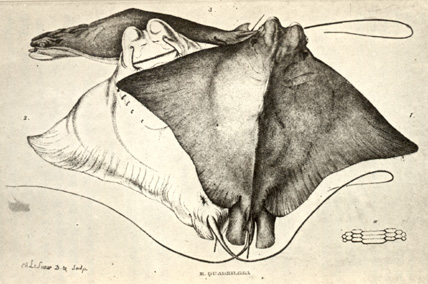Drexel University is a leading institution of higher education in the city of Philadelphia with a legacy of advancing technologies, industry and the arts for the betterment of society. Its medical school’s heritage of innovation and inclusion includes the first degree-granting medical school for women in the world. An affiliation with the Academy of Natural Sciences expands the scope of Drexel research, education and civic engagement into the natural and environmental sciences. The University has long held a focus on the history of science and has cultivated this as a feature of its history department.
Specialty
Natural and Environmental Sciences, History of Women in Medicine, Women's Health, Medical Education, Homeopathy, Engineering and Technology Education.
Collections
Library & Archives of the Academy of Natural Sciences of Drexel University
The collections of the Academy’s Library & Archives comprise rare and historic books, journals, art, artifacts, manuscripts, film, photographs, and the papers and research of Academy members and staff. They cover a broad range of subjects in the natural and environmental sciences, from the 16th century to the present. Additionally, the Academy’s Center for Systematic Biology and Evolution houses one of the world’s top natural history collections, with over 19 million specimens of plants and animals from around the world.
Drexel University College of Medicine: The Legacy Center Archives and Special Collections
The Legacy Center collections reflect the history of women physicians, women’s health, medical education, and homeopathic practice and pharmacology. Collections stem from the Drexel University College of Medicine predecessor institutions founded in the mid-1800s: Woman’s Medical College of Pennsylvania and Hahnemann Medical College, and include institutional, personal, and organizational records. Experiences of Black women physicians are documented in oral history collections, individual collections, and the Black Women Physicians Project. The Constantine Hering collection on Paracelsus encompasses 200 volumes dating from 1502, including original works of Paracelsus and early works on the philosopher's stone, alchemy, and botany.
University Archives serves as the institutional archives of Drexel University (excluding the health sciences units). The core of its collection is Drexel's academic and administrative records from 1891 to the present, including reports, publications, minutes and correspondence. Manuscript collections include papers that document individuals and organizations affiliated with Drexel, such as the personal papers and correspondence of faculty and alumni, as well as papers related to the Drexel family, records of Schramm, Inc. (manufacturer of compressors and drilling rigs), late 19th century Philadelphia, and professional library associations.
Collection strengths include the history of STEM education, especially engineering; the history of home economics education, design arts education, and business education; the history of the United States’ second library school; and the history of cooperative education, which also reflects the industrial history of the greater Philadelphia region.
Collections URL
Holding Highlights
Library & Archives of the Academy of Natural Sciences of Drexel University
• 250,000 library items on all aspects of natural history, with particular strengths in systematics, evolution, ecology, marine and freshwater biology, stratigraphy, history of science, exploration and travel.
• 3,500 linear feet of archival materials including manuscripts, field notebooks, and correspondence plus film reels, art, and artifacts reflecting the activity of the Academy since the time of its foundation in 1812 and more generally the development of the natural and environmental sciences.
Drexel University Archives
• 50 linear feet of archives of technical and industrial education, and of engineering and early technical institute records, part of approximately 2,500 linear feet of Drexel University collections.
Drexel University College of Medicine: The Legacy Center Archives and Special Collections
• Over 6,000 linear feet of correspondence, diaries, oral histories, rare books, photographs, objects and other materials related to the Woman’s Medical College of Pennsylvania (WMCP) and Hahnemann University.
• Women in medicine, internationally, evolving from WMCP's unique position as an all-female medical school.
• Manuscripts, organizational records, and published materials on the history of homeopathic medicine, rooted in Hahnemann's founding as the first school for homeopathic medicine in the United States and including over 5,000 volumes of historical and modern homeopathic medicine published titles.
